Anyone who goes to theatre or opera frequently is familiar with the all-too-common four-star show. These are great works that have been well-cast, well-sung, well-acted, well-staged, and generally checked all of the boxes… but something is missing that prevents the show from being a completely gripping musical and dramatic experience. It’s pretty easy to articulate what is needed to make an opera performance good, but what makes it great? I’ve heard several names for the elusive final ingredient: ‘buzz’, ‘life’, ‘energy’. There’s no single formula for achieving it. Pre-show energy warm-ups and cast team-building activities are attempts to inject this into a production, to encourage both the individual commitment and cast-wide camaraderie required to generate ‘life’.

Personally, I have found that individually great performances require a total lack of self-consciousness (not of self-awareness, which is important, but of preoccupation with how the actor will appear) and consistently clear ‘targets’ (things the character wants to accomplish) throughout. Sheer energy is also important; exhaustion on the part of an actor will usually seep into a performance unless countered by sufficient adrenaline. But a production will not ‘buzz’ unless, in addition to every individual actor-singer being fully committed, there are clear relationships among the cast members. It’s difficult to fake the kind of onstage give-and-take that characterizes ‘buzz’; wonderful energy comes from not only enjoying yourself onstage but watching people you genuinely care about succeed and have fun as well.
Rehearsals help to build ‘life’, but they can also kill it. There’s almost always more ‘life’ in performance than in even the best rehearsal, because the adrenaline rush of finally performing for an audience and receiving reactions is huge. (Note: having a responsive audience is wonderfully helpful, so if you’re an audience member who wants to see the best possible show, come in with an open mind and don’t stop yourself from laughing/gasping/crying.) But the rehearsals are still vital to ensuring ‘life’ is possible, as they build cast relationships and confidence in the show. However, over-rehearsal is a sure way to kill the ‘buzz’; scenes that have been read or sung so many times the actors have a hard time reacting in the moment or finding anything new are usually dead.
Greatness is by no means objective. Which shows have seemed to contain ‘life’ to me probably depends on my disposition as an audience member when I happened to see them as well as their intrinsic merit. That said, here are a few operas during which I perceived that elusive ‘buzz’:
- Decker’s La Traviata, both with the Netrebko/Villazon pairing at the Salzburg festival (2006) and with Damrau at the Met (2013)
- Ponnelle’s La clemenza di Tito as recently revived at the Met with Elina Garanca (2012)
- Alden’s Un ballo in maschera at the Met with Alvarez/Hvorostovsky/Radvanovsky (2012)
- Girard’s Parsifal at the Met with Kaufmann (2013)

René Pape as Gurnemanz, Jonas Kaufmann as the title character, and Katarina Dalayman as Kundry in the Met production of Parsifal. Photo: Ken Howard - Copley’s L’elisir d’amore at the Met with Damrau/Florez (2010)
- Žagars’ Tannhäuser at Prague State Opera with Frank in the title role (2014)
- The ‘green’ Ring at Seattle Opera this past summer (2013)
Obviously, this list is Met-heavy because that’s the opera house I have visited most frequently. I’d welcome suggestions of great performances at other venues (especially if they’ve been captured on DVD). Also, if you have experience or insight of what creates ‘life’ in performances, please share!
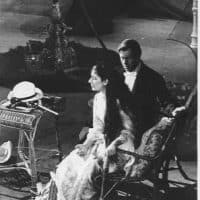
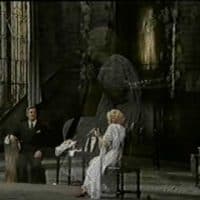

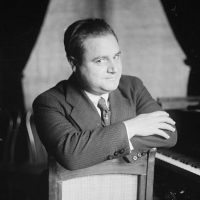

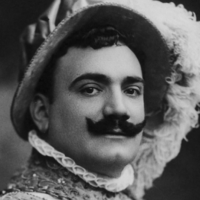

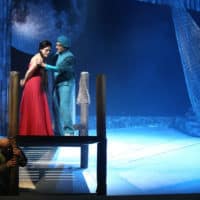
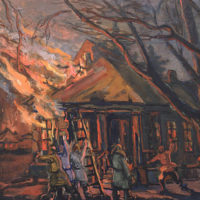

Don’t you think that a great performance also steps close to the edge (of disaster) – that the whole team is pushing to the very edge of their abilities.
I don’t think that’s an absolute requirement, but I do agree that element of risk definitely makes a great performance more likely.